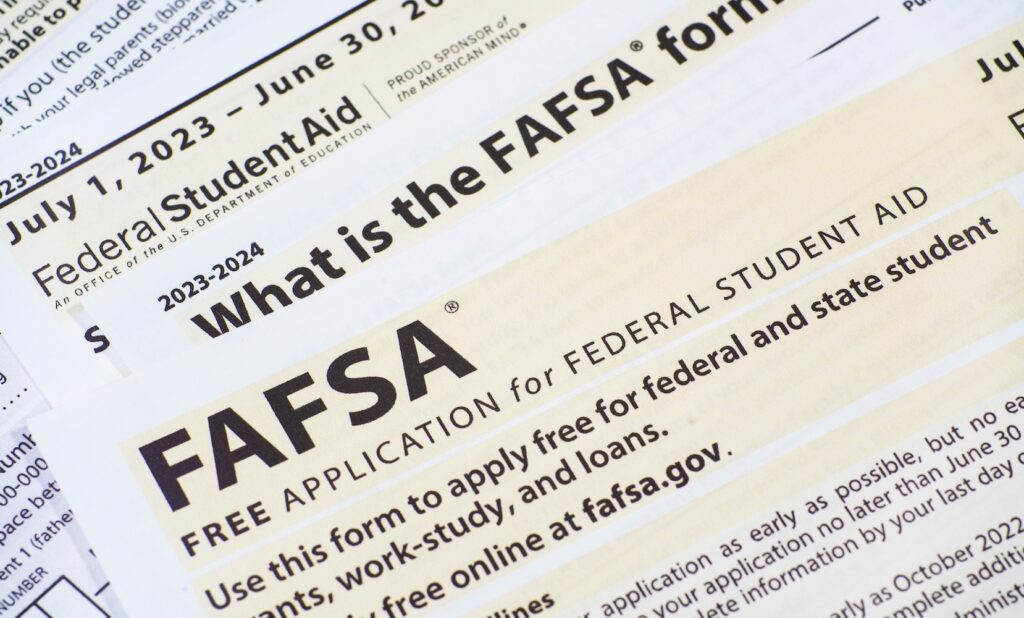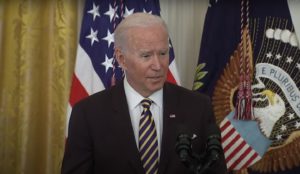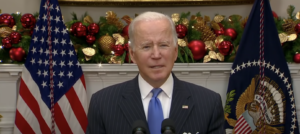Senator calls on watchdog to investigate FAFSA mess as critics want ouster of agency head
A powerful U.S. senator has called on the federal Government Accountability Office to investigate the Department of Education’s handling of its new Free Application for Federal Student Aid…

A powerful U.S. senator has called on the federal Government Accountability Office to investigate the Department of Education’s handling of its new Free Application for Federal Student Aid (FAFSA).
U.S. Sen. Chuck Grassley, R-Iowa, made the comments in an interview with the Daily Iowan.
Errors in the rollout of the new FAFSA have created unprecedented delays, which have prevented millions of college students from completing their enrollment for the fall semester.
The delays have caused a ripple effect throughout the entire education bureaucracy, which has already been rocked by numerous scandals such as widespread allegations of academic dishonesty, institutionalized racism in admissions and cheating.
“There’s definitely a credibility problem,” Jon Fansmith, senior vice president for government relations and national engagement at the American Council on Education, told Inside Higher Ed about the FAFSA scandal. “That’s because they keep slipping. Because errors keep being announced. Because people can’t rely on what they’re hearing. I don’t think there’s any intent to deceive, but it’s a nonstop litany of problems.”
Beyond just the egg on its face, the DOE’s mismanagement is causing students, universities and other schools to face drastic tuition shortfalls.
In a typical year, 17 million students use FAFSA to pay for college. In 2024, only 5 million have so far submitted applications, due to technical problems with the DOE’s program.
“This is too complicated. We ought to make it a lot simpler to fill these forms out,” Grassley said about the government’s overhaul of FAFSA ironically aimed at simplifying the process.
Grassley argues the situation has been brewing for over a year, making the current delays “terribly upsetting to the colleges and the parents.”
The resulting uncertainty over enrollment has sent a bolt of fear throughout higher education, Grassley notes.
“When you count on a certain amount of tuition income coming in, and it doesn’t come in, it’s a problem for the people who run the universities. We heard it from the universities, colleges, and community colleges before we heard from parents.”
Oddly enough, Biden appointee Richard Cordray took over the FAFSA program with a mandate to make it a lot easier.
“Instead,” the Washington Examiner writes in calling for Cordray’s ouster, “this new FAFSA has been plagued by error after error, delay after delay, and failure after failure, all of which have severely harmed the ability of students and families to prepare adequately for college and make informed decisions about their future in higher education.”
College financial aid administrators have told Inside Higher Ed they have difficulty trusting from day to day what the DOE’s people say about any fix.
Justin Draeger, president of the National Association of Student Financial Aid Administrators said the DOE is facing “a crisis of credibility.”
Grassley agrees, saying, “So, this is something that ought to be easy. I’m not sure I can give you a reason [for] all of these complications.”
Still, DOE’s credibility gap has been apparent to those outside the education bureaucracy for years. A Heritage Foundation report on student test scores says:
“Over those past two decades, while federal policymakers were busy enacting new federal laws, creating mandates for local school leaders, and increasing the Department of Education’s budget from $38 billion in 2000 (unadjusted for inflation) to roughly $70 billion today, the math and reading performance of American high school students remained completely flat.”
Notably, that report was penned prior to the pandemic’s precipitous decline in student achievement.
Today’s FAFSA crisis is significantly different in one respect: Today it’s the education bureaucracy that is threatened by DOE’s failures, so the alarm bells are pealing loudly throughout academia.
“The thing that is going to help them the best,” Brad Barnett, director of financial aid and scholarships at James Madison University, told Inside Higher Ed, “is fixing this and fixing it fast. The longer this drags on, the more problems there are, the longer it takes to fix corrections …that trust just continues to be eroded.”
Although Barnett was talking only about the problems with FAFSA, observers say it’s hard to find a better summary of the criticisms of the DOE over nearly 50 years, as it has failed to provide improvements in basic education for U.S. children.
It’s just that now the bureaucrats inside education are feeling the effects.



